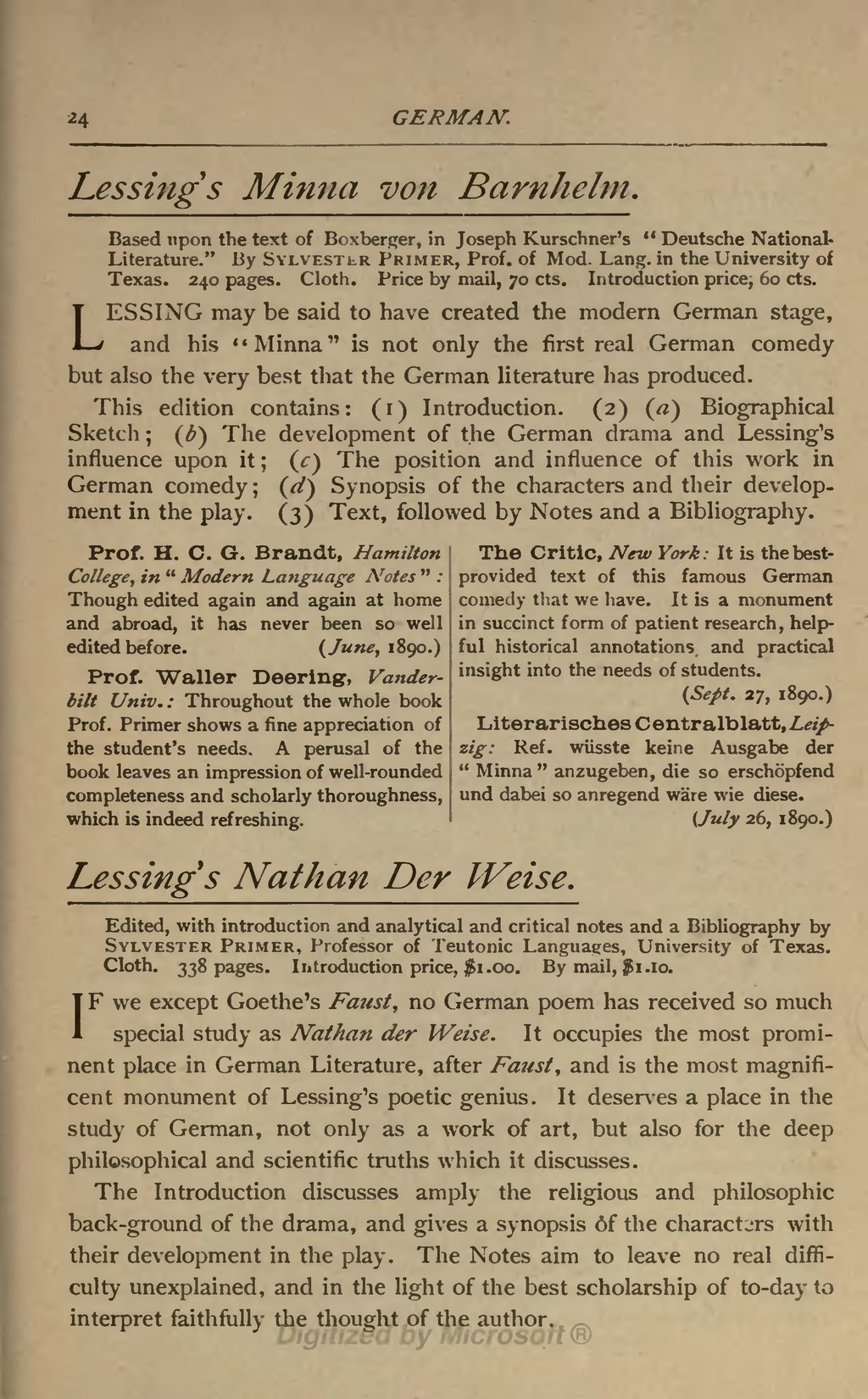Lessing’s Minna von Barnhelm.
Based upon the text of Boxberger, in Joseph Kurschner’s “Deutsche National-Literature.” By Sylvester Primer, Prof. of Mod. Lang. in the University of Texas. 240 pages. Cloth. Price by mail, 70 cts. Introduction price; 60 cts.
LESSING may be said to have created the modern German stage, and his “Minna” is not only the first real German comedy but also the very best that the German literature has produced.
This edition contains: (I) Introduction. (2) (a) Biographical Sketch; (b) The development of the German drama and Lessing’s influence upon it; (c) The position and influence of this work in German comedy; (d) Synopsis of the characters and their development in the play. (3) Text, followed by Notes and a Bibliography.
Prof. H. C. G. Brandt, Hamilton College, in “Modern Language Notes”: Though edited again and again at home and abroad, it has never been so well edited before.(June, 1890.)
Prof. Waller Deering, Vanderbilt Univ.: Throughout the whole book Prof. Primer shows a fine appreciation of the student’s needs. A perusal of the book leaves an impression of well-rounded completeness and scholarly thoroughness, which is indeed refreshing.
(Sept. 27, 1890.)
Literarisches Centralblatt, Leipzig: Ref. wüsste keine Ausgabe der “Minna” anzugeben, die so erschöpfend und dabei so anregend wäre wie diese.
(July 26, 1890.)
Lessing’s Nathan Der Weise.
Edited, with introduction and analytical and critical notes and a Bibliography by Sylvester Primer, Professor of Teutonic Languages, University of Texas. Cloth. 338 pages. Introduction price, $1.00. By mail, $1.10.
IF we except Goethe’s Faust, no German poem has received so much special study as Nathan der Weise. It occupies the most prominent place in German Literature, after Faust, and is the most magnificent monument of Lessing’s poetic genius. It deserves a place in the study of German, not only as a work of art, but also for the deep philosophical and scientific truths which it discusses.
The Introduction discusses amply the religious and philosophic back-ground of the drama, and gives a synopsis of the characters with their development in the play. The Notes aim to leave no real difficulty unexplained, and in the light of the best scholarship of to-day to interpret faithfully the thought of the author.
